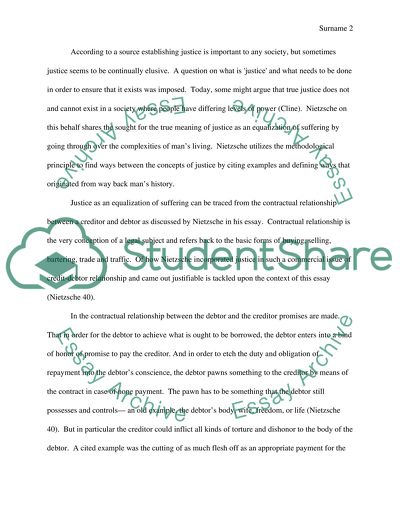Cite this document
(“Nietzsche on Justice: An Equalization of Suffering Essay”, n.d.)
Nietzsche on Justice: An Equalization of Suffering Essay. Retrieved from https://studentshare.org/philosophy/1444952-kant-and-nietzsche
Nietzsche on Justice: An Equalization of Suffering Essay. Retrieved from https://studentshare.org/philosophy/1444952-kant-and-nietzsche
(Nietzsche on Justice: An Equalization of Suffering Essay)
Nietzsche on Justice: An Equalization of Suffering Essay. https://studentshare.org/philosophy/1444952-kant-and-nietzsche.
Nietzsche on Justice: An Equalization of Suffering Essay. https://studentshare.org/philosophy/1444952-kant-and-nietzsche.
“Nietzsche on Justice: An Equalization of Suffering Essay”, n.d. https://studentshare.org/philosophy/1444952-kant-and-nietzsche.


